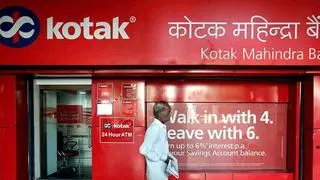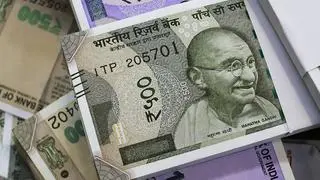The continued weak performance of banks has brought the focus back on the appallingly low deposit insurance cover in India. The 2018 annual survey by the International Association of Deposit Insurers (IADI) highlights the gnawing issue of low deposit cover in India vis-a-vis other countries.
In India, bank deposits are insured by the Deposit Insurance and Credit Guarantee Corporation of India (DICGC) for up to Rs 1 lakh. This works out to about $1,394 (at the current conversion rate of Rs 71.7 to a dollar). This is far lower than the cover available in other countries, according to an IADI 2018 survey. In Malaysia, for instance, deposit insurance cover is about $59,808 (up to 2,50,000 in Malaysian Ringgit). Indonesia has a deposit insurance cover of $1,40,173 (2 billion Indonesian Rupiah), Brazil at $61,576 (2,50,000 Brazilian Real), and Mexico at about $1,20,000 (2,373,820 Mexican peso).
In countries such as Canada, Switzerland, and France — the insurance cover is about $75,000 to $1,11,000 per depositor. In the US, the Federal Deposit Insurance Corporation offers insurance coverage of $250,000. Most of these countries cover 60-70 per cent of total deposits. In India, only about 30 per cent of deposits in value terms are covered.
Grossly inadequate
Deposit insurance in India covers all commercial banks, local area banks, regional rural banks and co-operative banks. Each depositor is insured up to Rs 1 lakh for both principal and interest. The deposits kept in different branches of a bank are aggregated for the purpose of insurance cover.
Coverage under the DICGC was last raised in 1993 from Rs 30,000 to Rs 1 lakh. Applying the inflation rate (consumer price index as put out by RBI) since 1993, the deposit insurance cover should be around Rs 5.5 lakh, currently.
A key roadblock in increasing cover has been the resultant increase in premium, which is currently borne by banks and not the depositors. The DICGC currently charges a maximum premium of up to 10 paise per Rs 100 per annum. Hence larger banks with higher deposit base would end up bearing the burden of a higher premium. Moreover, beneficiaries of the deposit insurance system, up until now, have mainly been urban cooperative banks. During 2017-18, DICGC settled claims for Rs 43 crore in respect of 18 co-operative banks. There was no claim from commercial banks. The last claim settled in respect of a commercial bank was way back in 2002.
Hence raising deposit cover, would imply stronger banks coughing up more premium, mostly for the benefit of weaker banks, which is a cause for worry.
To overcome some of these issues, a committee headed by Jasbir Singh had, in 2015, made recommendations for the introduction of risk-based premium for banks (higher the risk, higher the premium). Four years on, there has been little progress on this front.
No failure yet
Despite the abysmally low cover, what has offered depositors’ comfort is the fact that no commercial bank has failed in India, over the last so many decades. Between 1913 and 1955 almost 1,489 banks failed. Even after Independence banks continued to fail — Palai Central Bank being a case in point. Subsequently, the RBI was granted powers in the early 1960s for consolidation, compulsory amalgamation and liquidation of small banks. Since then, over 40 forced mergers have taken place in India — Punjab National Bank taking over Nedungadi Bank and the forced merger of Global Trust Bank with Orient Bank of Commerce — are the well-known ones in the early 2000s.
The recent amalgamation of Bank of Baroda, Dena Bank and Vijaya Bank, was also done to subsume the weaker Dena Bank. LIC also stepped in to bail out capital-starved IDBI Bank.
But such fall-back measures and the tacit support from the Centre should not prevent it from strengthening the deposit insurance system in India.









Comments
Comments have to be in English, and in full sentences. They cannot be abusive or personal. Please abide by our community guidelines for posting your comments.
We have migrated to a new commenting platform. If you are already a registered user of TheHindu Businessline and logged in, you may continue to engage with our articles. If you do not have an account please register and login to post comments. Users can access their older comments by logging into their accounts on Vuukle.